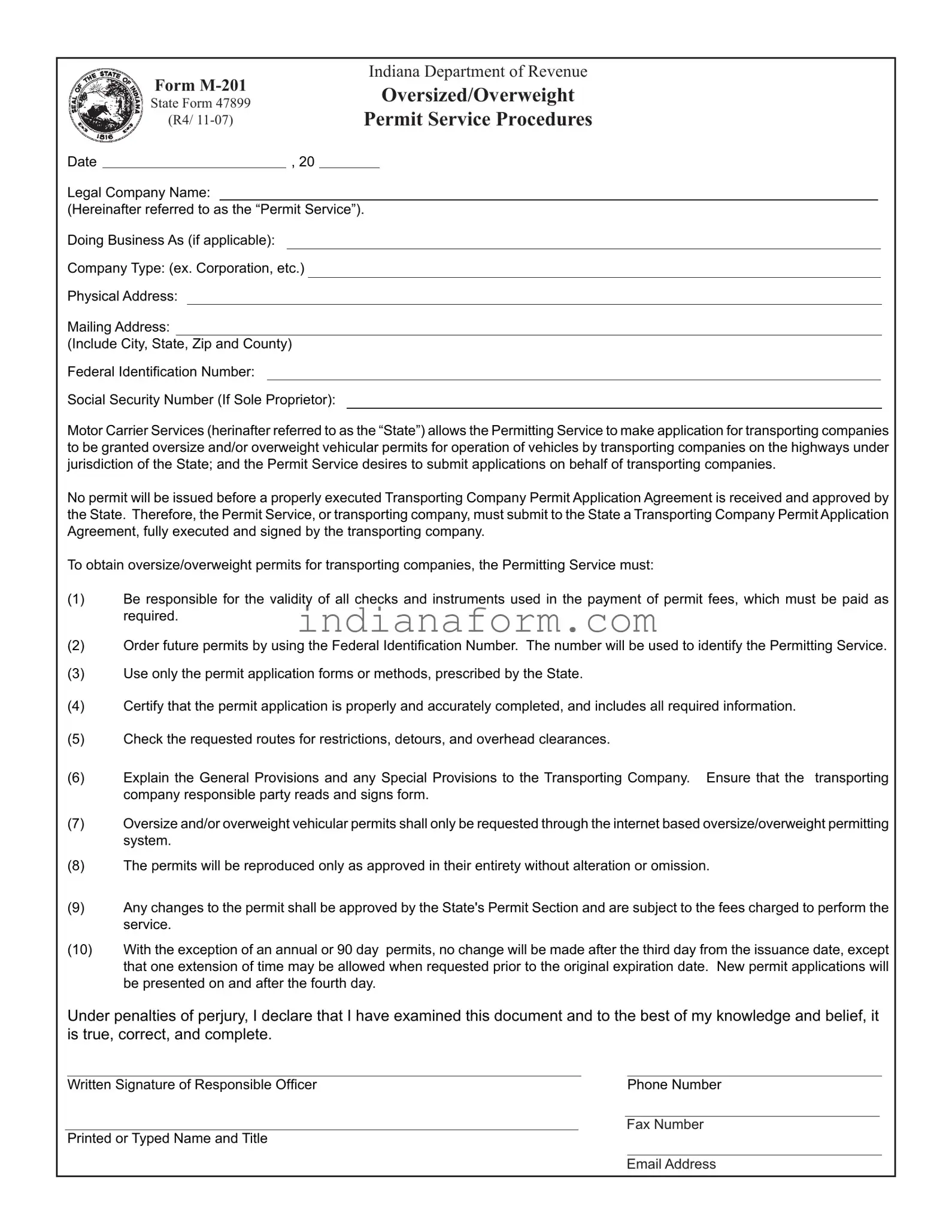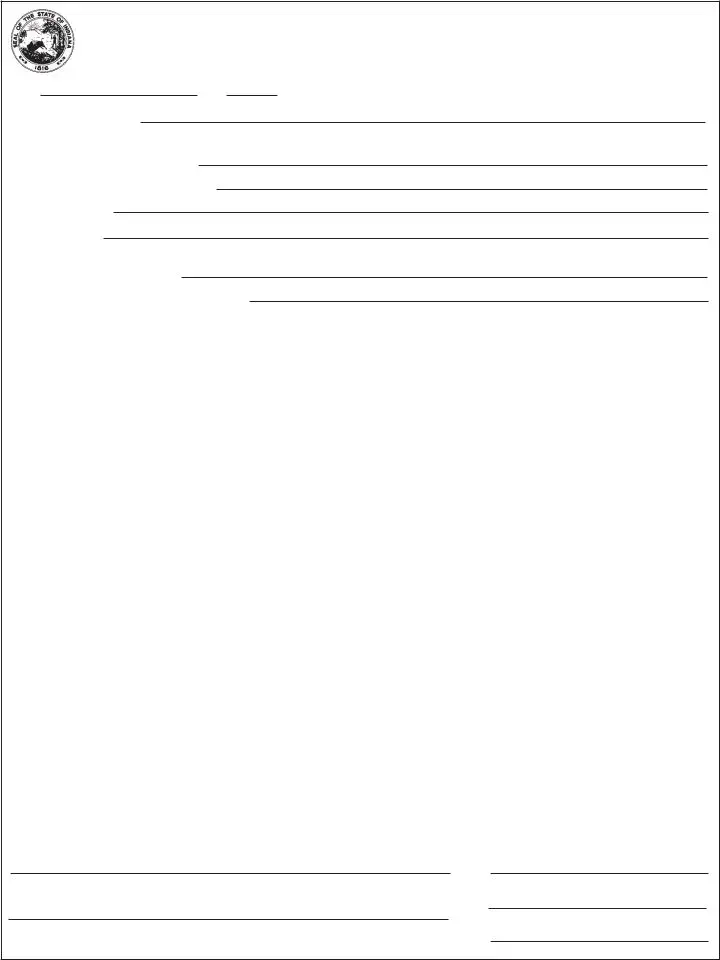|
Form M-201 |
Indiana Department of Revenue |
|
Oversized/Overweight |
|
State Form 47899 |
|
|
|
(R4/ 11-07) |
Permit Service Procedures |
Date, 20
Legal Company Name:
(Hereinafter referred to as the “Permit Service”).
Doing Business As (if applicable):
Company Type: (ex. Corporation, etc.)
Physical Address:
Mailing Address:
(Include City, State, Zip and County)
Federal Identification Number:
Social Security Number (If Sole Proprietor):
Motor Carrier Services (herinafter referred to as the “State”) allows the Permitting Service to make application for transporting companies to be granted oversize and/or overweight vehicular permits for operation of vehicles by transporting companies on the highways under jurisdiction of the State; and the Permit Service desires to submit applications on behalf of transporting companies.
No permit will be issued before a properly executed Transporting Company Permit Application Agreement is received and approved by the State. Therefore, the Permit Service, or transporting company, must submit to the State a Transporting Company Permit Application Agreement, fully executed and signed by the transporting company.
To obtain oversize/overweight permits for transporting companies, the Permitting Service must:
(1)Be responsible for the validity of all checks and instruments used in the payment of permit fees, which must be paid as required.
(2)Order future permits by using the Federal Identifi cation Number. The number will be used to identify the Permitting Service.
(3)Use only the permit application forms or methods, prescribed by the State.
(4)Certify that the permit application is properly and accurately completed, and includes all required information.
(5)Check the requested routes for restrictions, detours, and overhead clearances.
(6)Explain the General Provisions and any Special Provisions to the Transporting Company. Ensure that the transporting company responsible party reads and signs form.
(7)Oversize and/or overweight vehicular permits shall only be requested through the internet based oversize/overweight permitting system.
(8)The permits will be reproduced only as approved in their entirety without alteration or omission.
(9)Any changes to the permit shall be approved by the State's Permit Section and are subject to the fees charged to perform the service.
(10)With the exception of an annual or 90 day permits, no change will be made after the third day from the issuance date, except that one extension of time may be allowed when requested prior to the original expiration date. New permit applications will be presented on and after the fourth day.
Under penalties of perjury, I declare that I have examined this document and to the best of my knowledge and belief, it is true, correct, and complete.
Written Signature of Responsible Officer |
Phone Number |
Fax Number
Printed or Typed Name and Title
Email Address


